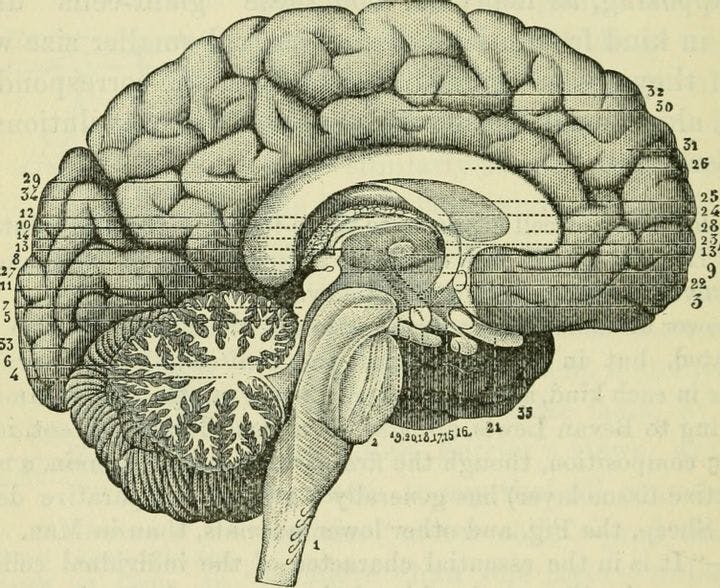Fall 2011
Against Biologism
– The Wilson Quarterly
Humans are not organisms simply acting out innate drives. Capabilities such as memory and intention make us an animal apart.
If you subscribe to The Wilson Quarterly, you are probably fond of reading. Where do you think that predilection comes from? A neural circuitry over which you have little control, or an amalgam of factors, including education and parental encouragement?
If you’re in the latter camp, you have an ally in Raymond Tallis, a retired physician and clinical scientist in the United Kingdom who staunchly opposes biological determinism, or biologism. Biologism’s governing idea is that humans are “organisms rather than people,” acting only out of innate drives. Adherents hold that human experience “is identical with activity in the brain.” All of this is hogwash, Tallis says. It’s true that some experiences roughly correlate with activity in certain parts of the brain. But there’s no saying that this is the only mechanism at play in human experience. Memory, for instance, has no specific way of being represented by brain activity. And biologism cannot account for what philosophers call “intentionality”—an awareness unique to humans of the otherness of the world around them. Human consciousness is so rich and multifaceted that it’s “a much tougher nut to crack than the mystery of the Trinity,” Tallis argues.
That’s not the only complaint he has with those who think that human experience can be wholly explained by the brain’s electrical impulses. They also strive too hard to see human behavior through an evolutionary lens, grasping for Darwinian explanations of artistic, religious, and ethical practices, he believes. Some speak of “memes”—cultural analogues to genes—that spread throughout society, rising and falling on their evolutionary usefulness. But humans are not just “pieces of living matter subject to the laws of the biosphere,” Tallis protests. Our cousins in the animal kingdom might be governed by unconscious biological imperatives, but people lead lives, “regulating them by shared and individual narratives.”
Humans are not organisms simply acting out innate drives. Capabilities such as memory and intention make us an animal apart.
People who look exclusively to the brain for answers to life’s great mysteries are barking up the wrong tree, Tallis concludes. “Our bodies are generated by natural processes, and . . . eventually the natural world closes over us. But between birth and death we inhabit a community of minds, a human world that goes beyond nature,” he writes.
THE SOURCE: “Neurotrash” by Raymond Tallis, in Prospect, June 2011.
Photo courtesy of Flickr/Internet Archive Book Images
